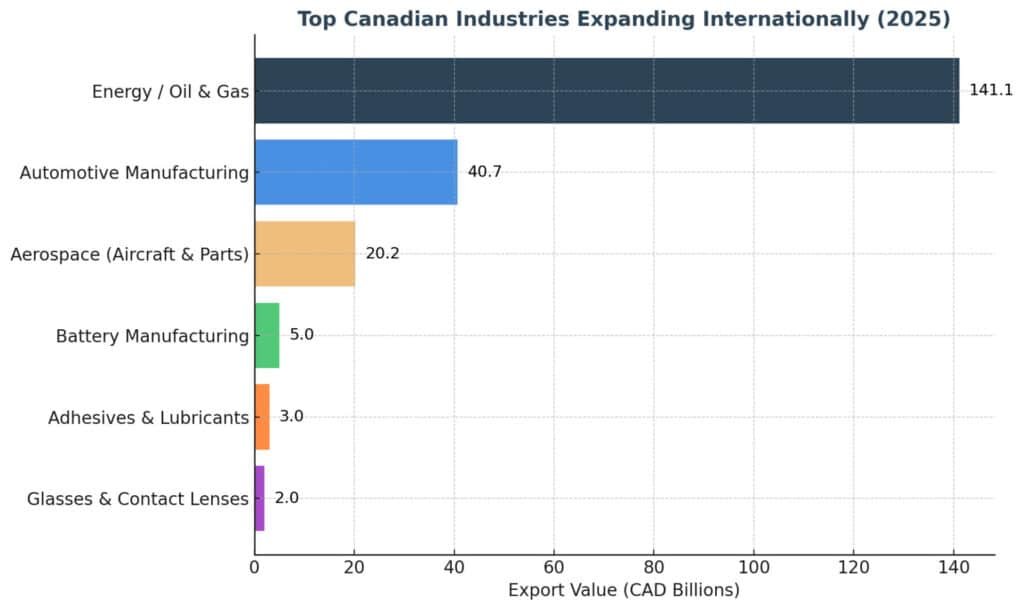Professional Translation Services Tailored to Canadian Businesses
Globalization is opening up unprecedented opportunities for Canadian businesses in international markets.
Last year alone, there were about 48,036 Canadian enterprises exporting goods.
As companies expand abroad, effective communication becomes a crucial factor in achieving success.
Translation services for Canadian businesses play a vital role in helping businesses connect with global audiences and overcome language barriers.
In this article, we will explore the benefits of translation for global expansion, industry-specific needs, and the importance of culturally adapted translations.
Why Are Translation Services Essential for Canadian Businesses Going Global?
Building Brand Trust and Credibility
Professional translations build trust by communicating that messages are not only accurate but also culturally appropriate.
- Example: Shopify (Ottawa-based) offers its platform in multiple languages, allowing small businesses worldwide to confidently use its services. This multilingual approach has helped Shopify grow into one of the world’s leading e-commerce companies.
- Example: Roots Canada adapts its branding and product messaging in markets like Taiwan and China, ensuring cultural resonance while maintaining its Canadian identity.

Overcoming Language Barriers
Clear communication is key when connecting with customers, partners, and stakeholders across diverse markets.
Translation supports regional preferences, such as differences between European French and Canadian French, or Spanish variations across Latin America.
- Example: Air Canada provides customer support and marketing content in multiple languages, ensuring travellers feel understood whether they’re booking flights from Paris, Tokyo, or Mexico City.
- Example: Tim Hortons localizes menus and campaigns for different countries (e.g., tea-focused options in China) while maintaining its core Canadian brand image.

Regulatory and Compliance Requirements
Accurate translation prevents legal risks, especially for product labelling, safety warnings, contracts, and advertising.
- Example: Loblaw Companies Limited (Canada’s largest food retailer) must comply with bilingual labelling laws in Canada and adapt packaging for international export markets.
- Example: Bombardier translates technical manuals, safety documents, and contracts to meet international aviation regulations, guaranteeing compliance and safety across multiple jurisdictions.

Industry-Specific Translation Services for Canadian Businesses
Translation services for Canadian businesses are a key factor across multiple industries.
In retail and e-commerce, they ensure product descriptions, websites, and campaigns are adapted to local markets, while in technology and software, software localization and multilingual SEO help companies expand globally.
In the hospitality industry, translators welcome international guests by adapting menus, travel guides, and promotional materials to create seamless experiences across languages.
The healthcare and pharmaceutical sector depends on accurate translations for clinical trials, medical documentation, and patient materials, where compliance is critical.
Similarly, legal and financial services require precise translation of contracts, reports, and compliance documents to meet international standards.
By using professional business translation services in Canada, companies can build trust, reach wider audiences, and navigate global markets with confidence.

Localization: Adapting Content Beyond Language
Understanding the Difference Between Translation and Localization
Localization goes beyond simple translation by adapting content to cultural nuances and regional preferences.
It is important to maintain brand tone and messaging while adjusting for local relevance.
Elements of Successful Localization
Adapting units of measure, currency, date formats, and other local conventions is necessary.
Ensuring cultural sensitivity in images, colour schemes, symbols, and humour helps resonate with each audience.
Examples of Localization in Action
Several Canadian brands have successfully localized their marketing campaigns, websites, or product packaging for global markets.
Failing to localize can lead to misunderstandings or negative brand perception.

Translation Technology and Tools for Canadian Businesses
AI and Machine Translation
Machine translation tools can aid in speed and efficiency for high-volume translation needs.
They are suitable for tasks like translating internal documents, but may lack the nuance required for public-facing content.
Computer-Assisted Translation (CAT) Tools
CAT tools assist human translators in maintaining consistency and accuracy across large projects.
Translation memory and glossaries help maintain brand voice and terminology across languages.
When to Use Professional Translators vs. Automated Solutions
Human translators are important for critical, public-facing documents and materials requiring cultural sensitivity.
Balancing AI-assisted tools and professional services depends on the type and importance of the content.
Choosing the Right Translation Partner for Global Success
When choosing translation services for Canadian businesses, it’s important to look for providers with proven industry expertise, especially in regulated fields like healthcare, legal, and finance.
Native-speaking translators who understand cultural nuances ensure accurate and effective communication.
Businesses should also evaluate providers based on turnaround times, quality assurance processes, and scalability to support international growth.
A collaborative approach helps maintain brand tone and consistency while offering valuable insights into cultural trends and market preferences.
For reliable, professional, and culturally relevant translations, consider working with BeTranslated to strengthen your global presence.

Challenges and Best Practices for Canadian Businesses Expanding Globally
Overcoming Cultural and Linguistic Challenges
- Plan strategically to address cultural differences and language nuances.
- Conduct thorough market research to understand local preferences and sensitivities.
Managing Costs and Budgeting for Translation
- Create a dedicated translation budget and prioritize key content.
- Use cost-effective approaches like phased rollouts, focusing on high-impact materials or key markets first.
Maintaining Quality and Consistency Across Languages
- Follow best practices to ensure accuracy and brand consistency.
- Establish a clear workflow for reviewing and approving translations with local stakeholders.
The Strategic Advantage of Translation Services in Global Markets
Translation services empower Canadian businesses to connect effectively with international audiences.
Culturally adapted, accurate translations are valuable for building trust and achieving long-term success in global markets.
Contact BeTranslated to help you every step of the way and guide your business in achieving global success.
FAQs
- Why are localization and translation services for Canadian businesses important for going global?
- Localization adapts content to cultural and regional preferences. This helps companies connect more effectively with international audiences.
- What are some common challenges Canadian businesses face in translation?
- Common challenges include cultural adaptation, regulatory compliance, and maintaining brand consistency across languages.
- How does machine translation differ from professional translation?
- Machine translation is useful for basic tasks. Professional translation services for Canadian businesses are essential for accuracy, cultural relevance, and brand tone.
- What industries benefit the most from translation services?
- Retail, tourism, technology, healthcare, legal, and financial sectors rely heavily on translation services to reach global audiences.
- How can businesses ensure quality in translations?
- Partnering with experienced translation providers helps maintain high-quality translations. Using quality assurance processes and leveraging CAT tools also contributes to translation quality.
